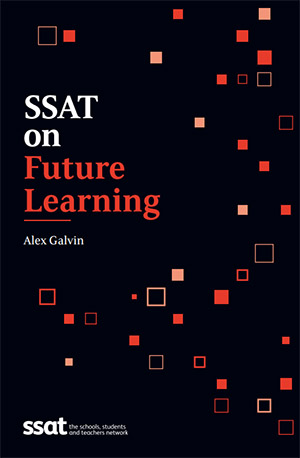
Did you know? You can access 100s of resources by becoming an SSAT member.
Login or enquire today.
SSAT on Future Learning
Technology has changed how we learn and how we acquire knowledge. We have immediate access to unimaginable amounts of information at the touch of a button. Arguably, the democratisation of learning is now more dependent on access to technology than access to books and other resources.
But how should schools, and the education system generally, respond to this dramatic shift?
In May 2017, SSAT led ‘future learning’ seminars around the country with Dr William Rankin, director of Unfold Learning and until recently the worldwide director of learning at Apple. This publication is a culmination of those discussions, our extensive work in the field of curriculum and learning, and Dr Rankin’s most recent research. It also aims to capture some of the wisdom shared by our member schools during this process and offer further food for thought.
The oft-repeated line that we are ‘preparing young people for jobs that may not yet exist’ has fed into an ongoing ‘knowledge vs skills’ debate. Does a knowledge-based curriculum lose its relevance if we cannot structure the content to support future employability? If we focus on skills, are we dumbing down and denying our young people access to cultural capital? But in truth, consideration of future learning cannot be about knowledge vs skills.
Any attempt to develop skills without also focusing on acquiring and applying knowledge will be a hollow exercise, as this pamphlet demonstrates. It offers seven key skills and qualities for future success: lifelong learning and personal responsibility for skills development; self-motivation and flexibility; effective communication skills; ability to transfer knowledge and skills; ability to work collaboratively; creativity and problem-solving; and analytical skills.
It explains the vital role of these skills and qualities and how they are best applied in education, with summaries of the key conclusions and recommendations from some of the world’s best researchers and thinkers in this area. The pamphlet ends with 12 key recommendations for future learning.
SSAT Membership
Join SSAT to gain free access to our widest range of CPD, programmes, tools and resources.

